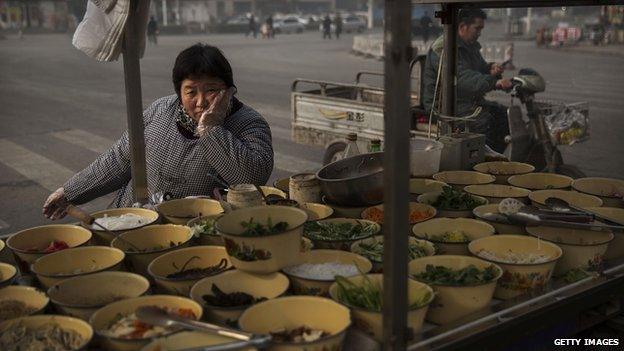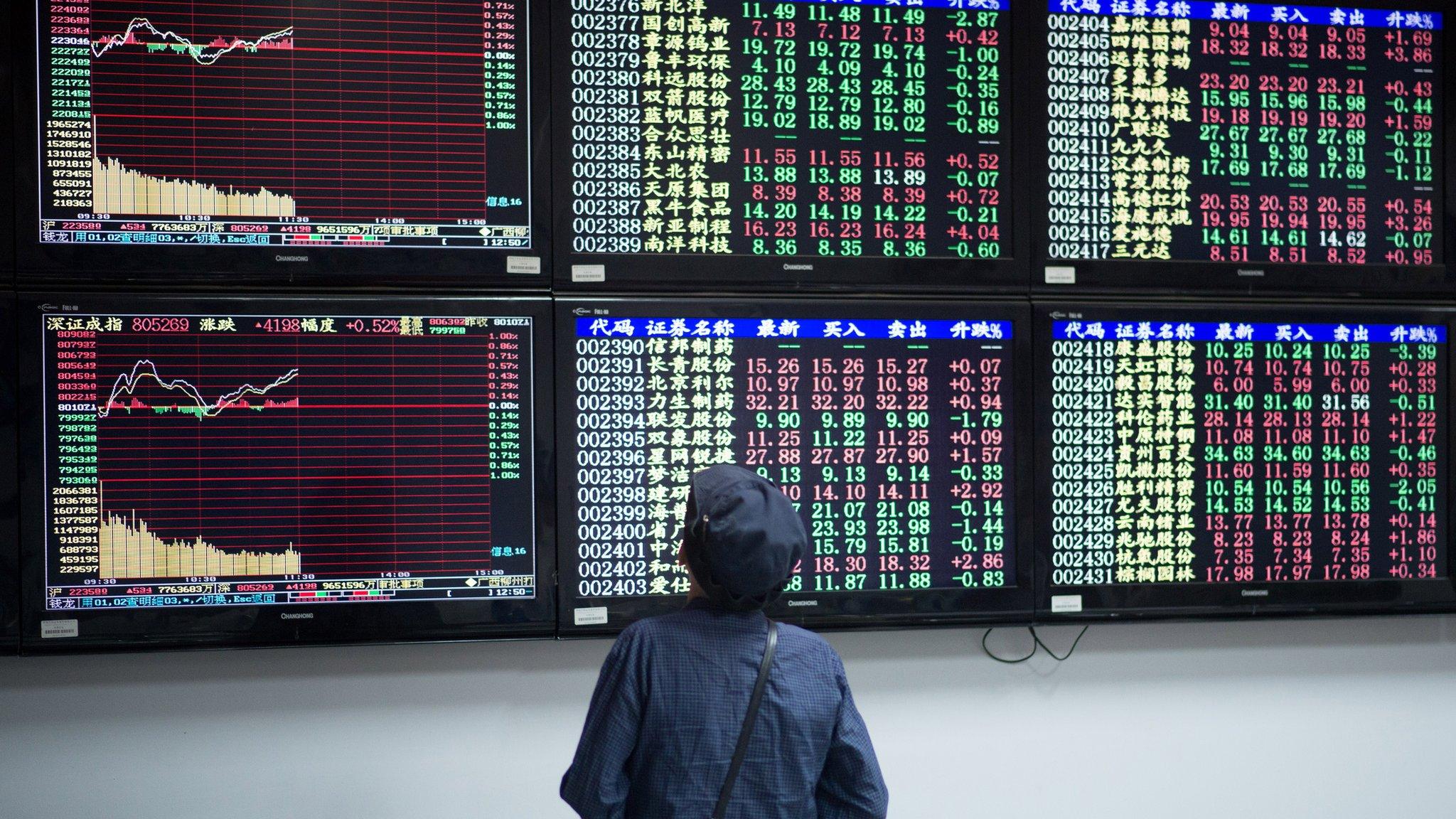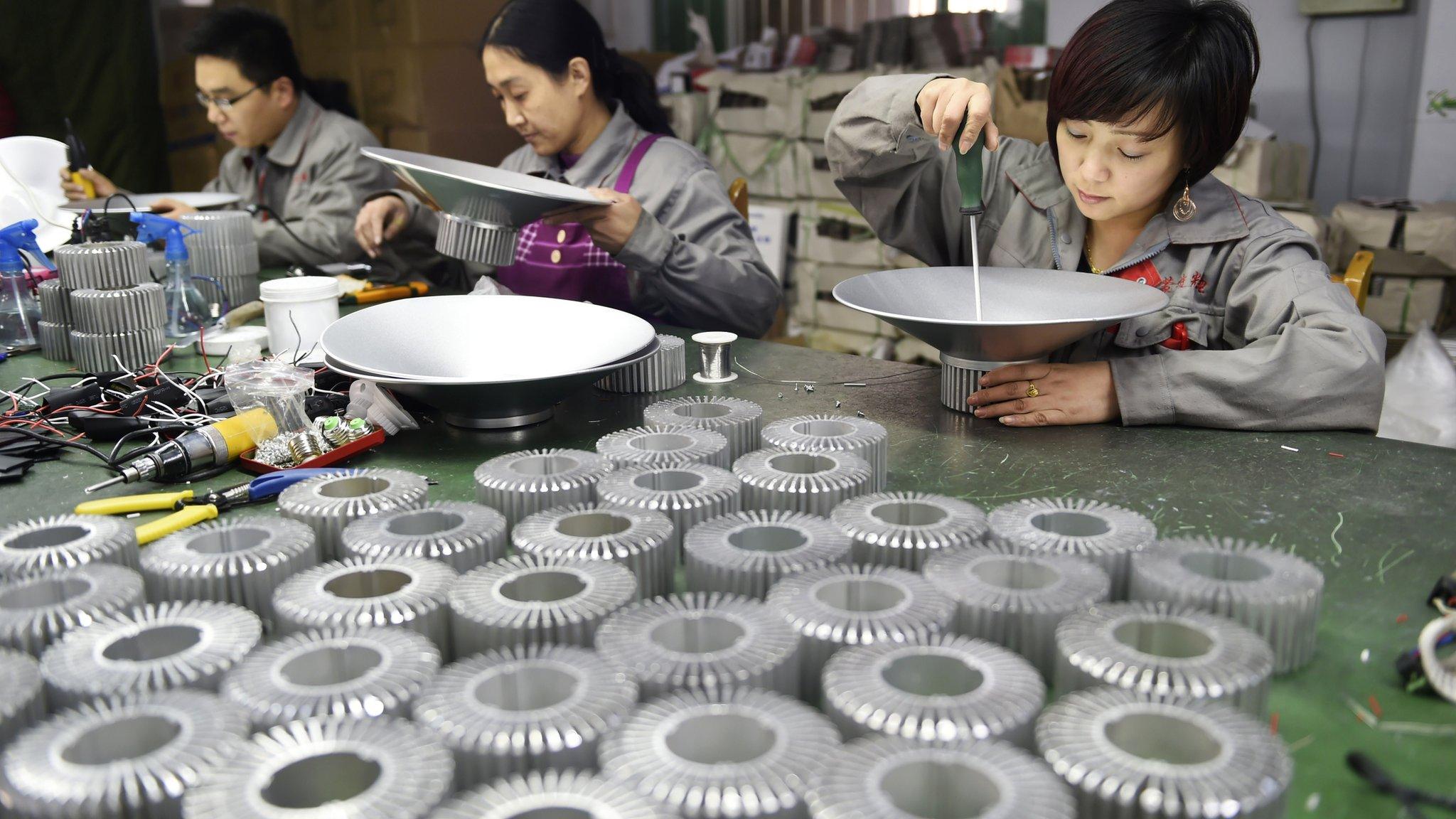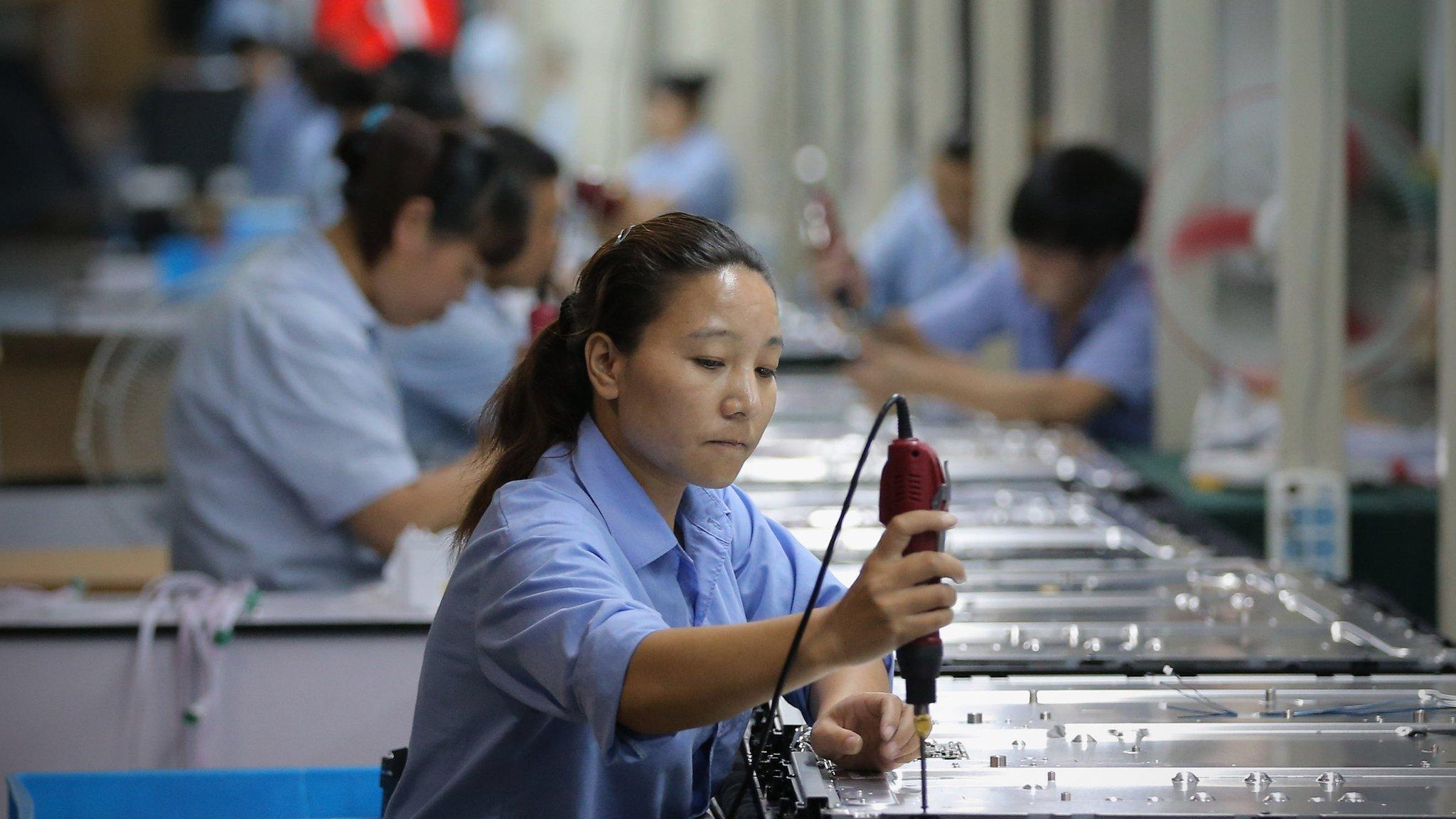China's inflation rate rises to 1.6% in July, missing a government target
- Published

China's inflation rate has picked up a little but is still well below target
China's consumer inflation rate hit its highest level this year in July, but is still well below the government target of about 3%.
The rate edged up to 1.6% from 1.4% the month before because of rising food prices, the government said.
Producer prices, which include wholesale and factory price inflation, fell for the 40th month in a row.
Analysts say the data points to the need for measures to stimulate the world's second-largest economy.
The producer price index was down 5.4% from a year earlier - it had been expected to fall by just 5% in July.
China's central bank has cut interest rates four times since November last year in an effort to boost economic activity. But Zhou Hao, economist at Commerzbank in Singapore, said it would probably need to do so again.
"Policy focus is definitely the [producer] deflation at this stage," he added.
Figures published earlier this month indicate that the Chinese economy grew by 7% in the April-to-June period, the same as in the first three months of the year.
However, it was still the weakest showing since the global financial crisis, and experts doubt that this level of growth can be sustained.
The worries over the health of the economy are reflected in the performance of the Chinese stock market. The mainland's benchmark index, the Shanghai Composite, has lost almost a third of its value since mid-June.
A slowing property market, low investment and a fall in exports have hampered growth.
- Published7 August 2015

- Published3 August 2015

- Published15 July 2015
